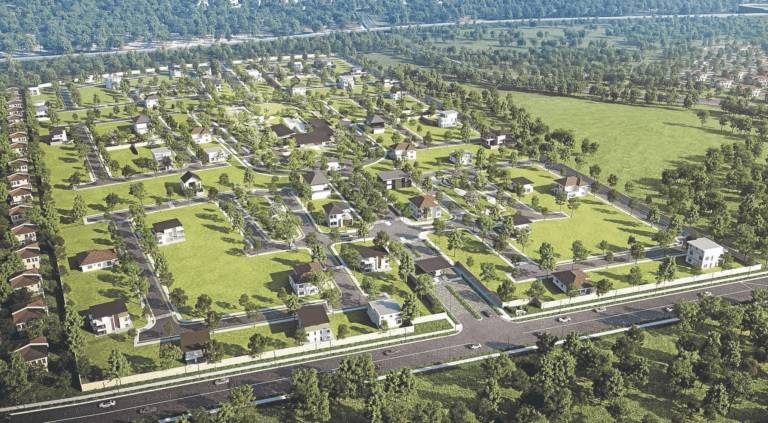Property triumvirate

(Conclusion)
In my previous column, we discussed feasible property investment hubs outside Metro Manila. As mentioned, three locations appear as topmost considerations namely Cebu, Cavite, and Laguna. Following our discussion about Cebu last week, we will now talk about Cavite and Laguna.
Cavite continues to attract developers
Cavite is part of Region IV-A, one of the most progressive and dynamic regions in the Philippines.

In our view, continued regional economic expansion, improving infrastructure network, and residents’ rising purchasing power should help stoke appetite for residential units in Cavite. The demand for horizontal projects in the province rose at the height of the pandemic, with investors looking for bigger open spaces. This resulted in the rise of lot-only and house-and-lot prices in Cavite even at the height of the pandemic in 2021.
What’s interesting about Cavite is that it used to serve as bedroom community for employees in Metro Manila’s business districts. But its property landscape has evolved over the years. From mostly economic to lower mid-income housing, we now see more expensive (upscale and luxury condominium) projects in Cavite, brought about by the massive developments led by national players.
Residential demand should also be supported by the further expansion of industrial activities in Cavite. Industrial take-up is heavily driven by manufacturing companies particularly engaged in automotive, semi-conductors and packaging.
It should be noted that Cavite is part of Region IV-A which corners bulk of manufacturing commitments attracted by the current administration. As these investment pledges materialize, we only expect greater industrial activities in Cavite, and this should help lift the profile and price segments of new residential projects launched in the city.
Laguna lures more property investments
Colliers believes that Laguna remains an attractive option among property investors and end-users who plan to live and invest in less dense communities, especially given its proximity to Metro Manila.
Colliers sees the entry of national players further raising average condominium prices in Laguna. We are likely to see more developers further testing Laguna’s market for more upscale and luxury projects. Industrial players continue to gravitate towards Laguna due to the presence of expansive industrial parks, integrated communities and stand-alone residential projects, including an ample supply of house-and-lots (H&L).
Along with Cavite, Laguna remains a preferred destination by investors and end-users scouting for horizontal projects. Similar to Cavite, national developers have taken an active role in launching massive masterplanned projects in Laguna, taking advantage of consumers’ preference for more open spaces and the need to be near offices, malls, schools, and hospitals.
Some developers even took their differentiation strategy in Laguna a notch higher by offering sports and recreational facilities. We project more pronounced differentiation moving forward as property firms capture demand from more affluent and discerning property investors from the south.
Key success factors for Cebu
As Colliers previously highlighted, key success factors for Cebu include having strong design and branding elements as well as demand from external buyers. In our view, the latter positively influenced prices of residential projects in Cebu. We also see Cebu city and Mactan getting heightened interest from foreign buyers especially now that the travel and tourism sector is starting to rebound. Cebu should benefit from the recovering leisure and hospitality sector, thanks to its expanded and modernized airport.
In our view, developers should consider providing more innovative products in Cebu, including resort-themed integrated projects and villas to capture demand from discerning local and foreign investors.
Overall, we are projecting continued rise in prices of house-and-lot and lot-only projects, due in part to rising remittances from Filipinos working abroad and growing affluence of local end-users. The infrastructure projects lined up in Cebu will definitely be beneficial for the property sector.
We only see land and property values in Cebu rising once the proposed fourth bridge and Bus Rapid Transit (BRT) are completed. Colliers previously highlighted the aggressive development of townships outside Metro Manila and Cebu will definitely see more masterplaned projects including those developed between Philippine developers and their foreign partners.
Improving connectivity
Both Cavite and Laguna will continue to reap the benefits of improving connectivity between Metro Manila and Southern Luzon. The region has long benefited from big-ticket infrastructure projects and its attractiveness for more foreign direct investments will continue to grow with massive public projects lined up by the national government, including the North-South Commuter Railway and LRT-1 Cavite extension.
The two provinces will also continue to be key contributors to Region IV-A’s economic dynamism. Brisk public and private construction activities, complemented by solid services and industrial sectors, should propel the region to new heights and ensure continued rise in purchasing power and affluence of local investors and property end-users.
Both provinces will continue, as well, to be on the radar of foreign investors, whether from manufacturing or property development segments. Hence, we project a constant increase in land and property values in Cavite and Laguna. Colliers expects developers to continue to look for massive parcels of developable land in the two provinces especially as they position for more strategic acquisition of land that can be developed into leisure or resort-themed projects.
Prior to joining Colliers in March 2016, Joey worked as a Research Manager for a research and consutancy firm where he handled business, political, and macroeconomic analysis. He took part in a number of consultancy projects with multilateral agencies and provided research support and policy recommendations to key government officials and top executives of MNCs in the Philippines.


















